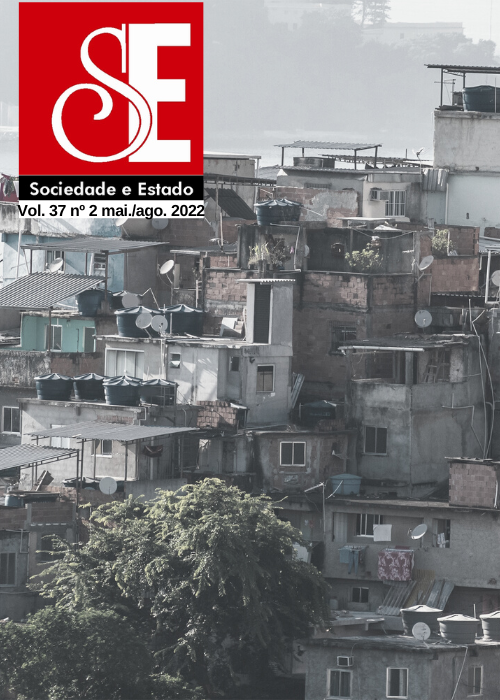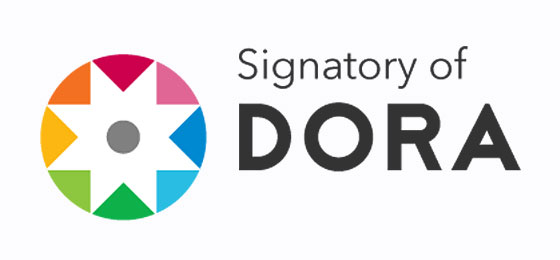Who abstains in Brazil? Local competition and Covid-19 effect on turnout in the 2020 municipal election
DOI:
https://doi.org/10.1590/s0102-6992-202237020010Keywords:
municipal elections, 2020, covid-19, political competition, abstentionAbstract
In the present research we examines the electoral abstention. The paper is about the voter participation in political disputes. The objective is to analyze the effects of political variables associated with the effect of the Covid-19 pandemic on electoral abstention in the 2020 local elections in Brazil. The disputes of all 5,568 municipalities are considered to answer the question: who and where else abstained in the 2020 elections? The aggregate results show that municipalities with more deaths from Covid-19 tended to have higher abstention. However, the number of candidates, used as an indicator of electoral competition, exerted a strong opposite effect - in favor of turnout. At the individual level, the data indicate that men, low schooling and age over 40 years tended to participate less in the 2020 elections.
Downloads
References
ANDUZIA, Eva; CANTIJOCH, Marta; GALLEGO, Aina. Political participation and the Internet. Information, Communication & Society, v. 12, n. 6, p. 860-878, 2009.
BARNES, Tiffany; RANGEL, Gabriela. Subnational patterns of participation: compulsory voting and the conditional impact of institutional design. Political Research Quarterly, v. 71, n. 4, p. 826-841, 2018.
BIRCH, Sarah. Full participation: a comparative study of compulsory voting. Manchester, UK: Manchester University Press, 2009.
BLAIS, André. Political participation. In: LEDUC, Lawrence; NIEMI, Richard; NORRIS, Pipa (Orgs.). Comparing democracies 3: elections and voting in the 21st Century. London: Sage, 2010.
______. What affects voter turnout? Annual Review of Political Science, v. 9, n. 1, p. 111-125, 2006.
BLAIS, André; CARTY, Kenneth. Does proportional representation foster voter turnout? European Journal of Political Science, v. 18, n. 2, p. 167-181, 1990.
BLAIS, André; DOBRZYNSKA, Agnieszka. Turnout in electoral democracies. European Journal of Political Research, v. 33, p. 239-261, 1998.
BORBA, Julian. As bases sociais e atitudinais da alienação eleitoral no Brasil. Revista Debates, v. 2, n. 2, p. 134-157, 2008.
CALDEIRA, Gregory; PATTERSON, Samuel; MARKKO, Gregory. The mobilization of voters in congressional elections. The Journal of Politics, v. 47, n. 2, p. 490-509, 1985.
CEPALUNI, Gabriel; HIDALGO, Daniel. Compulsory voting can increase political inequality: evidence from Brazil. Political Analysis, v. 24, n. 2, p. 273-280, 2016.
CERVI, Emerson; BORBA, Felipe. Quem se abstém no Brasil? Uma descrição do perfil socioeconômico dos eleitores ausentes no primeiro turno das eleições de 2018. Trabalho apresentado no XLIII Encontro Nacional da Anpocs, 2019.
COX, Gary; MUNGER, Michael. Closeness, expenditures, and turnout in the 1982 US house elections. The American Political Science Review, v. 83, n. 1, p. 217-231, 1989.
FERNANDÉZ-NAVIA, Tania; POLO-MURO, Eduardo; TERCERO-LUCAS, David. Too afraid to vote? The effects of Covid-19 on voting behavior. European Journal of Political Economy, no prelo, 2021.
FRANKLIN, Mark. Electoral engineering and cross-national turnout differences: what role for compulsory voting? British Journal of Political Science, v. 29, n. 1, p. 205-216, 1999.
GEYS, Benny. Explaining voter turnout: areview of aggregate-level research. Electoral Studies, v. 25, n. 4, p. 637-663, 2006.
GOERRES, Achim. Why are older people more likely to vote? The impact of ageing on electoral turnout in Europe. British Journal of Politics & International Relations, v. 9, n. 1, p. 90-121, 2007.
HANMER, Michael. Discount voting: voter registration reform and their effects. New York: Cambridge University Press, 2009.
HIGHTON, Benjamin. Easy registration and voter turnout. The Journal of Politics, v. 59, n. 2, p. 565-575, 1997.
HOLBROOK, Thomas; MCCLURG, Scott. The mobilization of core supporters: campaigns, turnout, and electoral composition in United States presidential elections. American Journal of Political Science, v. 49, n. 4, p. 689-703, 2005.
HOOGHE, Marc. Citizenship and participation. In: LEDUC, Lawrence; NIEMI, Richard; NORRIS, Pipa (Orgs.). Comparing democracies 4: elections and voting in a changing world. London: Sage, 2014.
JACKMAN, Robert. Political institutions and voter turnout in the industrial democracies. The American Political Science Review, v. 81, n. 2, p. 405-424, 1987.
LEDUC, Lawrence; NIEMI, Richard. Voting behavior: choice and context. In: LEDUC, Lawrence; NIEMI, Richard; NORRIS, Pipa (Orgs.). Comparing democracies 4: elections and voting in a changing world. London: Sage, 2014.
LEIGHLEY, Jan; NAGLER, Jonathan. Individual and Systemic Influences on Turnout: Who Votes? 1984. The Journal of Politics, v. 54, n. 3, p. 718-740, 1992.
LIMA JR., Olavo Brasil. Democracia e instituições políticas no brasil dos anos 80. São Paulo: Loyola, 1993.
LUTZ, George; MARSH, Michael. Introduction: consequences of low turnout. Electoral Studies, v. 26, n. 3, p. 1-9, 2007.
NICOLAU, Jairo. A participação eleitoral: evidências sobre o caso brasileiro. Trabalho apresentado no VIII Congresso Luso-Afro-Brasileiro de Ciências Sociais. Coimbra, 2004.
NOURI, Abdul; FRANÇOIS, Abel; GERGAUD, Olivier; GAREL, Alexandre. How does Covid-19 affect electoral participation? Evidence from the French municipal elections. PLoS ONE , v. 16, n. 2, e0247026, 2021. Disponível em: .
» https://doi. org/10.1371/journal.pone.0247026
NWANKWO, Cletus F. Covid-19 pandemic and political participation in Lagos, Nigeria. SN Social Science, n. 1, p. 146-169, 2021.
PICCHIO, Matteo; SANTOLINI, Raffaella. The Covid-19 pandemic’s effects on voter turnout. IZA Working Paper 14241, 2021.
SANTANA, Andrés; RAMA, José; BÉRTOA, Fernando. The coronavirus pandemic and voter turnout: addressing the impact of Covid-19 on electoral participation. SocArXiv, 2020.
SILVA, Rafael. Comportamento eleitoral na América Latina e no Brasil: em busca dos determinantes das abstenções, votos brancos e votos nulos. Tese (Doutorado em Sociologia Política) - Universidade Federal de Santa Catarina, Florianópolis, SC, 2016.
SOLIJONOV, Abdurashid. Voter turnout trends around the world. International Idea, 2016.
SOUZA, Cíntia. Efeitos de competição, gastos de campanha e fragmentação eleitoral sobre comparecimento e votos válidos nas eleições municipais brasileiras em 2012. Revista Opinião Pública, v. 25, n. 2, p. 312-342, 2019.
VÁZQUEZ-CARRERO, Miguel; ARTÉS, Joaquim; GARCÍA, Carmen; JIMENÉZ, Juan Luís. Empirical evidence of the effects of Covid-19 on voter turnout. Covid Economics, v. 50, p. 181-208, 2020.
WATTENBERG, Martin. Is voting for young people? Boston, MA: Harvard University Press, 2012.
Downloads
Published
How to Cite
Issue
Section
License
Copyright (c) 2022 Sociedade e Estado

This work is licensed under a Creative Commons Attribution-NonCommercial 4.0 International License.




.jpg)



















